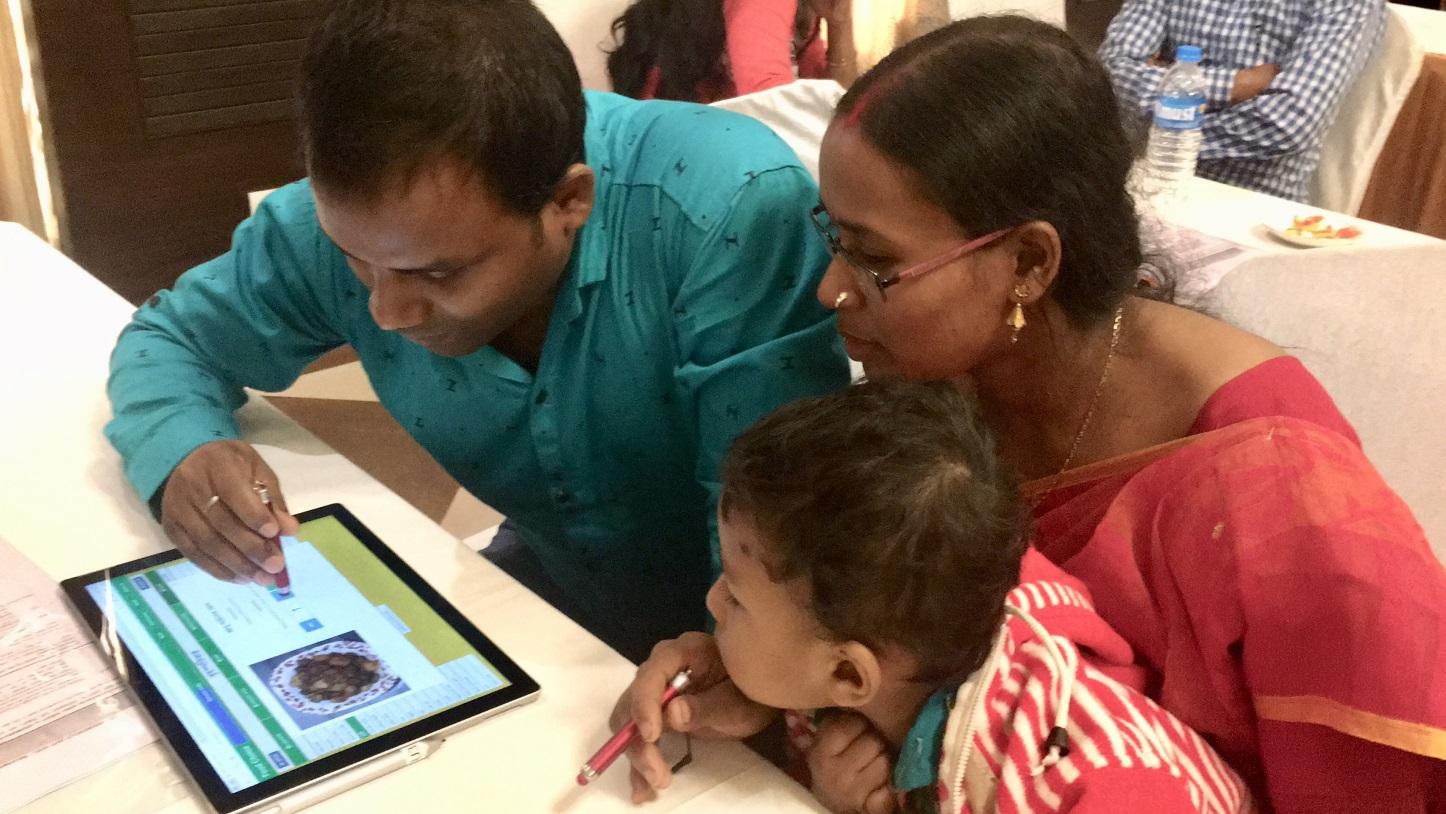Kolkata, INDIA— IRRI, through its market analysis research, gains a better understanding of consumer food choices in order to support behavioral change communication programs that aim at nudging consumers with healthier food choices in rice-based diets.
According to IRRI senior economist and leader of the “Behavioral Drivers of Food Choice in Eastern India” (DFC) project, Dr. Matty Demont, behavioral experiments among randomly selected Indian households from Kolkata, Siliguri and rural West Bengal are currently being conducted. Respondents are exposed to several incremental levels of nutritional information on healthy diets through a Behavioral Change Communication (BCC) broadcast featuring renowned nutritionist Dr. Anindita Ray (Chakravarti) from Maharani Kasiswari College, Kolkata. Participants are then invited to plan their weekly household meals through an interactive app (similar to the investment game application) which captures the rich diversity of day-to-day food choices in West Bengal.
“In these experiments, both household head and their spouse were given the opportunity to plan their household meals using the app, first individually and then jointly as a couple. This process enables researchers to capture the diversity of food choices and preferences through a gender lens and learn more about intrahousehold decision-making on food choice, says Dr. Arindam Samaddar, an anthropologist based at IRRI in New Delhi, India.”
Designing the app faced the daunting task of capturing the rich diversity of food choice in West Bengal. According to Dr. Anindita Ray (Chakravarti), “after a long process of inventorying, preparing, standardizing, analyzing, and photographing dishes in our food lab, we identified 188 unique Bengali dishes that are most commonly consumed by low and middle income classes in both urban and rural Bengal. These dishes were then entered into the app and allocated to five eating occasions: breakfast, morning snacks, lunch, afternoon snacks and dinner. The participants almost unanimously agreed that the app realistically captured the food choice they face in their everyday life.”
According to IRRI consumer expert Marie Claire Custodio, “the menus selected by the households will be converted into nutritional outcome information. The latter will enable us to test whether Behavioral Change Communication (BCC) successfully nudges Indian consumers towards healthier food choices.” This generates a wealth of information that will reveal consumption habits of urban and rural households under different income and information levels. The rich dataset will enable us to better understand the drivers of food choice and in particular the roles of income and information.”
The behavioral experiments are jointly implemented by IRRI and Aeon Market Research Private Limited in the framework of the DFC Competitive Grants Program funded by the Bill and Melinda Gates Foundation and UK Aid and managed by the University of South Carolina Arnold School of Public Health.
Learn more about IRRI (www.irri.org) or follow us on social media and networks (all links down the right column).

